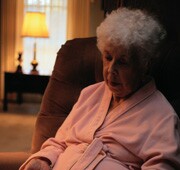
SUNDAY, Jan. 27 (HealthDay News) — It’s no secret that your memory skills decline as you get older, making it harder for you to pick up new tasks or remember where you put your keys.
Now, a new study suggests that the culprit lurks in the lighter sleep that accompanies aging.
Researchers found that older people get less deep sleep than their younger counterparts, and this appears to be directly linked to less reliable memory. Older people were more than 50 percent less able to remember new things after sleeping than young people.
The study, however, isn’t definitive. It was fairly small, mostly looked at women and examined only one kind of memory — the ability to remember pairs of words. Its authors, however, said the findings are strong enough to justify paying more attention to helping older people sleep better.
“In the young adults, sleep was doing a really good job at not letting those memories dissolve,” explained study author Matthew Walker, an associate professor of neuroscience and psychology at the University of California at Berkeley. “Sleep just wasn’t doing that same kind of job in the elderly. As a consequence, they had far more severe forgetting, and a significant reason was because of the quality of their deep sleep.”
In the study, researchers gave memory tests to 18 younger people (with an average age of 20) and 15 older people (with an average age of 72). The participants were then monitored as they slept, and took the memory test again.
After making statistical adjustments, the researchers found that although the older and younger people were about the same when it came to remembering things before sleeping, their ability to remember diverged afterwards.
The researchers said the older adults scored 55 percent less on the memory test after sleeping. They would not discuss the actual scores, saying they would be misleading from a statistical point of view.
The memory differences between the older and younger adults would probably be “noticeable in situations that require consistently high performance,” said Dr. Phyllis Zee, director of the Sleep Disorders Center at Northwestern University.
So what’s going on? The researchers blame it on less sleep in the older people.
“It’s not just important to sleep before learning,” Walker said. “You have to sleep after learning to consolidate those new memories and make long-term memories.”
The researchers believe that older people aren’t remembering as much because their sleep isn’t as deep as that of the younger people. The good news is that better sleep could make a difference, he said.
Paul Reber, an associate professor of psychology at Northwestern University who studies sleep, said there’s reason to support a focus on deep sleep in particular. “It could be the case that as we age, our sleep gets disrupted more — by aches, pains and [the] bladder — and this is affecting our daily memory function,” he said.
The story appears online Jan. 27 in the journal Nature Neuroscience.
More information
For more about memory, try the U.S. National Library of Medicine.

